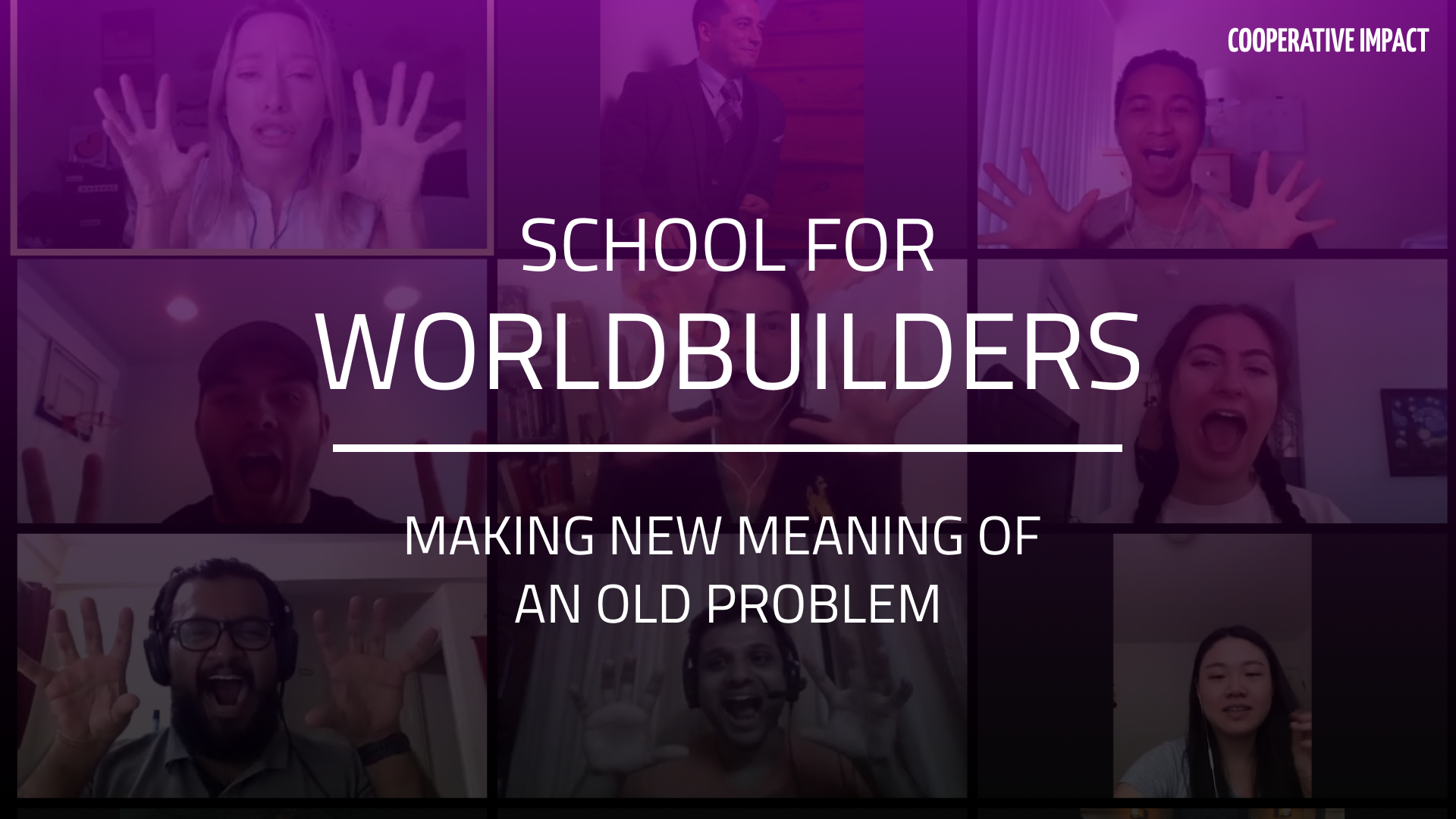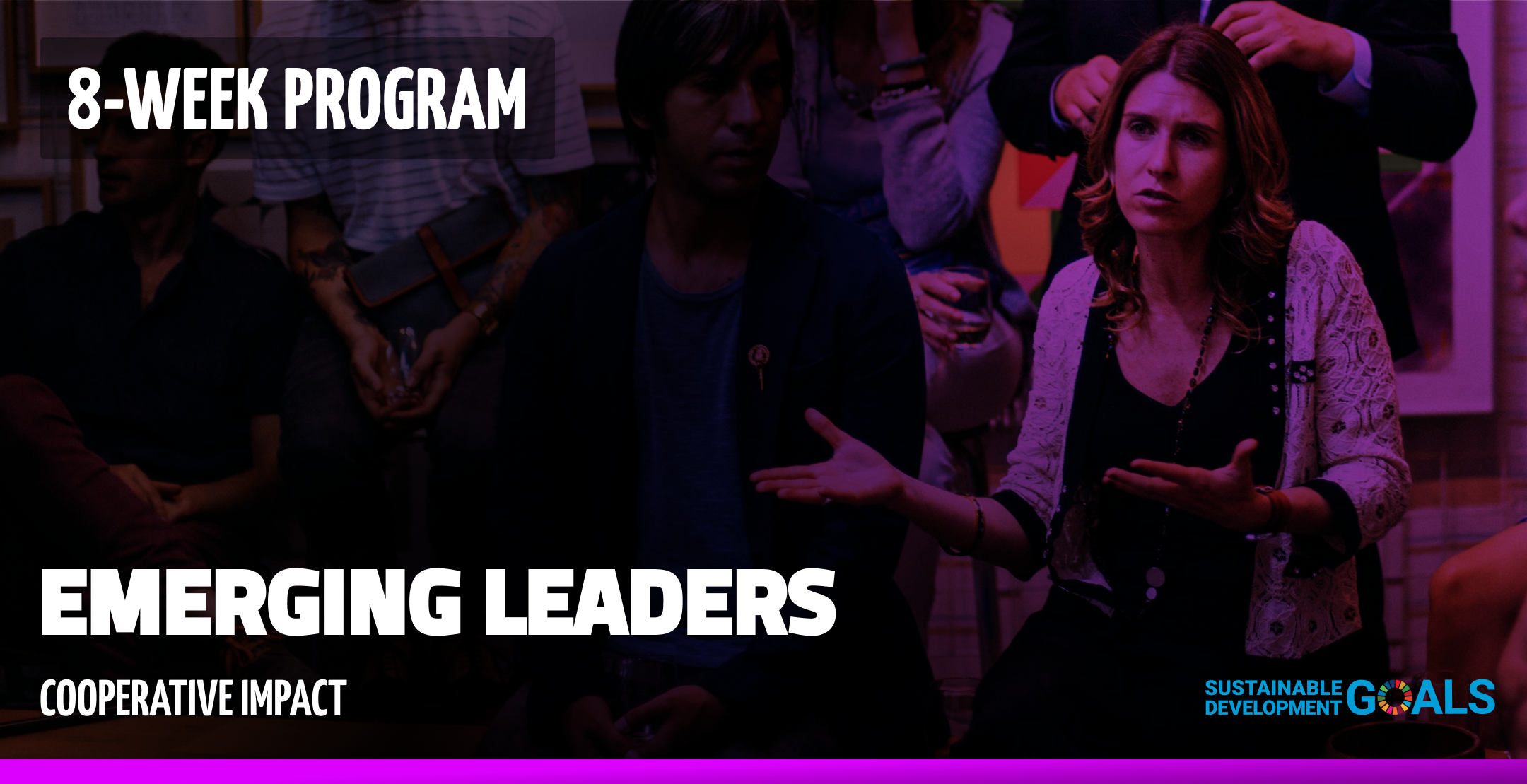Cooperative Impact is a school where changemakers are building the future. The school empowers people to rise out of their circumstances by emerging as the solutions to our greatest challenges.
The school uses a ‘centering’ approach to provide wraparound support to learners as they self-direct their way through the transformations required to bring themselves from where they are today, to that beautiful, visionary place in the future that we may not be able to comprehend right now.
The approach is comparable to the one used to improve outcomes for women and their children as they move through the social, emotional, spiritual, and biological transformations of pregnancy. In this case, the learners are the mothers. They emerge as the next version of themselves with a new entrepreneurial intent which allows for the inception of an idea for a startup that solves a social problem. Learners are then nurtured through the process of giving birth to this new type of organization similar to how a mother gives birth to a newborn.
Unlike the traditional education pathways and newer alternatives, the school practices a lean and agile approach to improvement similar to how the world’s leading software is developed – ongoing iterations are made based on the interactions and feedback from its users. The school sees this as a necessary element to ensure the curriculum is always adapted to be culturally relevant in service of the learner’s rapidly evolving needs.
The school is producing its own research to show the impact of centering on the life trajectory and outcomes of the learners in its programs, and the projects the learners create to measure the long-term impact on existing social problems.
What will that world look like?
The school’s ambition is for learners to build the foundation of a new economy. An economy rooted in a new type of organization that exists to serve unmet human needs and uses traditional business models to sustain and maximize its impact.
The school’s intention is to support the human race in overcoming the obstacles preventing our evolution ie climate, centralized data, prioritizing personal financial gains over the health and wellness of the collective body of humans that inhabit the planet, etc.
The school enters a new market – perhaps creates a new market – by taking it a step even further. Rather than sharing this approach with the privileged few, it actively seeks out a population known as the Lost Einsteins, “women, minorities, and people who grew up in a disadvantaged environment. They are 10 times less likely to become inventors and patent holders than white American men.”
The school draws a line in the sand when it made the choice to prioritize serving the Lost Einsteins rather than leveraging the pedagogical innovation for quick financial gains. Instead, it places the Lost Einsteins in the center focus, and makes decisions about how to run the school based on what will improve the life outcomes of these learners AND the collective.
Launch a Venture That Makes an Impact
One of the programs currently offered to the Lost Einsteins is called Emergent Leadership. Learners collaborate to launch ventures that impact the United Nations Sustainable Development Goals.
As of October 7th, 2020 at 11am, the waitlist has grown to over 2,300. Each time the school brings the concept to a new country, it quickly attracts 25-50 new learners who signup per day coming from North America, Africa, Europe, and Asia. The school temporarily slowed down its outreach to complete the current cohort. The school wants to complete a round of improvements to the curriculum and its online learning space, the Lab, in preparation for the influx of onboarding new learners.
Learners are invited to step into the center of an organic environment where they explore new ways of being, integrate new daily practices, collaborate with stakeholders across sectors, and build the muscles of their superpowers like empathy, compassion, and imagination.
The experience provides wraparound services of ongoing social emotional support, dedicated spaces to strengthen social ties with peers, original content created by the school, live workshops with cutting-edge facilitators, and intentional activities that represent the core steps of building startups that solve social problems.
The curriculum is adaptive to flex and align with the evolving needs of each learner as they navigate their way through The Four Movements: Humanity, Community, Innovation, and Impact.
The desired outcome?
A compassionately resilient creator the world hasn’t seen before. She is a calculated risk-taking and system-shaking worldbuilder who is hungry to manifest a civilization that lays the foundation for the next 100 to 1000 years of life on this planet.
The school defines a new solution for learning and business that looks different than existing accredited alternatives and does not fit into the existing structures provided by, for example, the institution of higher education.
This means questioning and reimagining the concept of credentials. Does a piece of paper – a degree – a certificate of completion – indicate the significance of experiencing a moment of transformation? Would a mother be able to tell the story of pregnancy, birth, and raising a family by printing out a piece of paper that says, “I’m a mother!” ???
To meet the moment for learners to leverage the value they receive from the school in the current workforce, they crafted a competency model and skills framework.
Learners earn Open Badges with verifiable information that includes their accomplishments, the name of the skills they developed, where they developed it, who they worked with to develop it, the experience they went through that tells the story of how they developed the skill, and the name(s) of the people/entities who verify the data.
Unlike the existing badging landscape, the school is adamant about not automating the issuance of Open Badges. The school believes automating the badging process may further exacerbate an already very bad problem.
The school differentiates itself by continuing to prioritize the learner. It humanizes the process and implements a one-on-one approach to ensure the experience offered is, in fact, supporting the learner to cultivate the desired skill.
This due diligence process is designed to ensure the school delivers the outcomes it promises to the learner. “If we expect the next generation to clean up our mess AND become the leaders of an equitable and sustainable future, the least we can do is create the conditions for their success.”
What, exactly, does that future world look like?
The school says they don’t know what the future looks like, but they know the Lost Einsteins will be in a position of power to find out.

